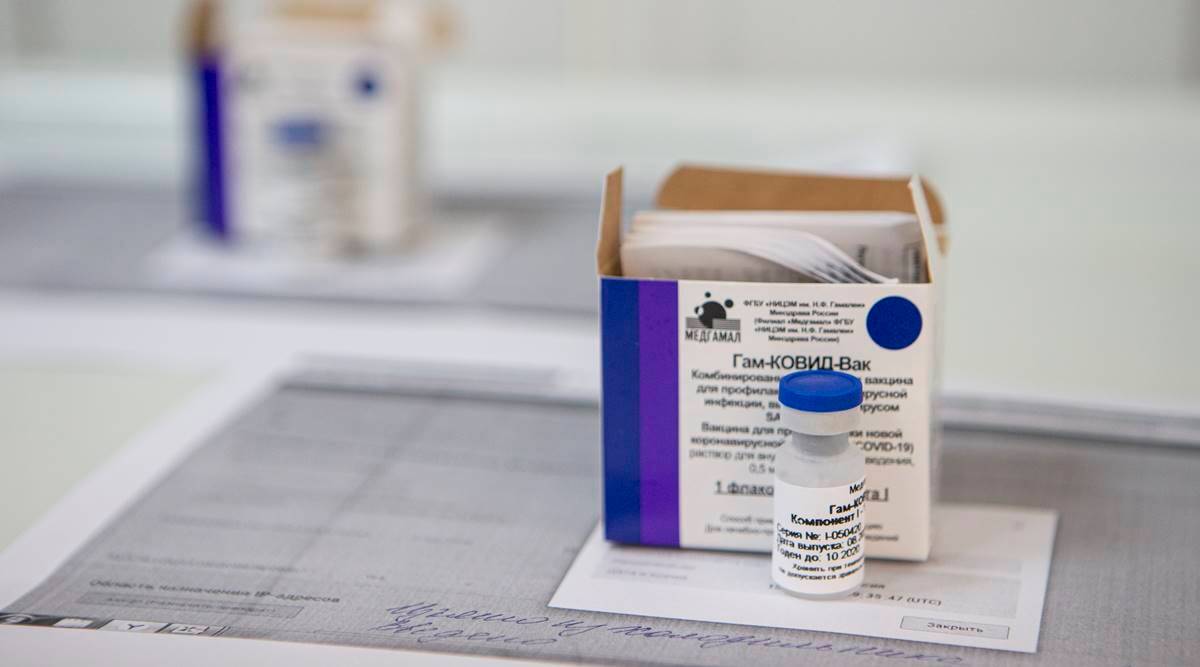RIO DE JANEIRO, BRAZIL – The Russian government declared that the Sputnik V vaccine, produced by the Gamaleya Institute with the support of the Russian Direct Investment Fund (RDIF), is also over 90 percent effective against Covid-19.
The announcement was made hours after the North American pharmaceutical company Pfizer disclosed preliminary results on the efficacy of its vaccine.
Pfizer issued a press release on Monday, November 9th, after the interim review (which occurs when there are a sufficient number of cases of the disease in one of the study groups) of Phase 3 clinical trial (the last before approval) of the BNT162b2 vaccine, which suggested the efficacy of over 90 percent of the immunizer in protecting against Covid-19.

To Reuters news agency in Moscow, Oksana Drapkina, research director of the Gamaleya Institute, linked to the Russian Ministry of Health, reported that the Sputnik V also had high efficacy proven in individuals who were immunized in the country. The difference is that these results refer to the immunized population, rather than a trial with volunteers and control group for comparison.
“Based on our observations, its efficacy is also over 90 percent. The emergence of another vaccine with efficacy is good news for everyone,” Drapkina said.
Unlike a double-blind, randomized and controlled clinical trial (considered the gold standard because it randomly splits subjects into different groups and does not allow anyone involved to know which subjects were given the vaccine and which were given a placebo, decreasing bias and the chances of the causal relationship being coincidental), the immunization of the healthy population, as was authorized in Russia on August 11th, does not ensure the scientific evidence needed to prove efficacy.
In rigorous clinical trials of drugs or vaccines, in the third and final phase of the study, tests are conducted with thousands of healthy volunteers to assess the efficacy of the vaccine or drug. Efficacy can be defined as the proportion of case reduction between the intervention group – which received the immunizer – and the placebo group – which did not receive the immunizer, but instead another substance, such as a saline solution or a vaccine that prevents against another disease unrelated to the study.
If the number of confirmed cases of the disease is higher in the placebo group compared to the immunized group, the vaccine’s efficacy is proven.
When the drug or vaccine is used in the population as a whole and not in the clinical study group, the drug’s efficacy is assessed. This is the case of the Russian vaccine, which was used to immunize tens of thousands of people in the country.
Failing to provide results to support the claim, Russia is again challenged by the scientific community and charged for the lack of transparency of vaccine studies in the country.
In August, when stating that the Sputnik V vaccine was the first in the world to be registered against the novel coronavirus, the Russian government was criticized for not disclosing the initial results of human trials, which correspond to phases 1 and 2 clinical trials, before the approval of registration.
In early September, the first results of phases 1 and 2 clinical trials were published in the scientific journal The Lancet, showing that the vaccine is capable of inducing an immune response and is safe. Phase 3 clinical trials, however, have not yet been completed.
The Sputnik V uses two adenoviruses, Ad26 and Ad5, to produce the immune response in the body. Adenoviruses are common cold viruses in humans (Ad5) and are traditionally used for drug production. In them, a section of the coronavirus RNA is inserted, responsible for codifying the S protein (of “spike” or spicle, a structure used by the virus to bind to the host cells). This genetic material of the virus, when released in the patient’s cell, induces the production of the S protein, which in turn induces a defense reaction of the body in the form of antibodies against the coronavirus Sars-CoV-2.
The American Pfizer has also not yet presented the official publication of its preliminary analysis of phase 3 trials which corroborate the data released yesterday by the company, but said it can complete the study by reaching the minimum number of 164 confirmed cases of Covid-19.
The pharmaceutical company intends to submit the emergency use of the vaccine to the FDA (the US drug regulatory agency) for approval by the end of the month, after receiving the results of the last two months of the vaccine study.
Source: Folhapress

